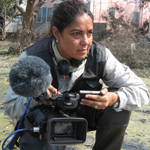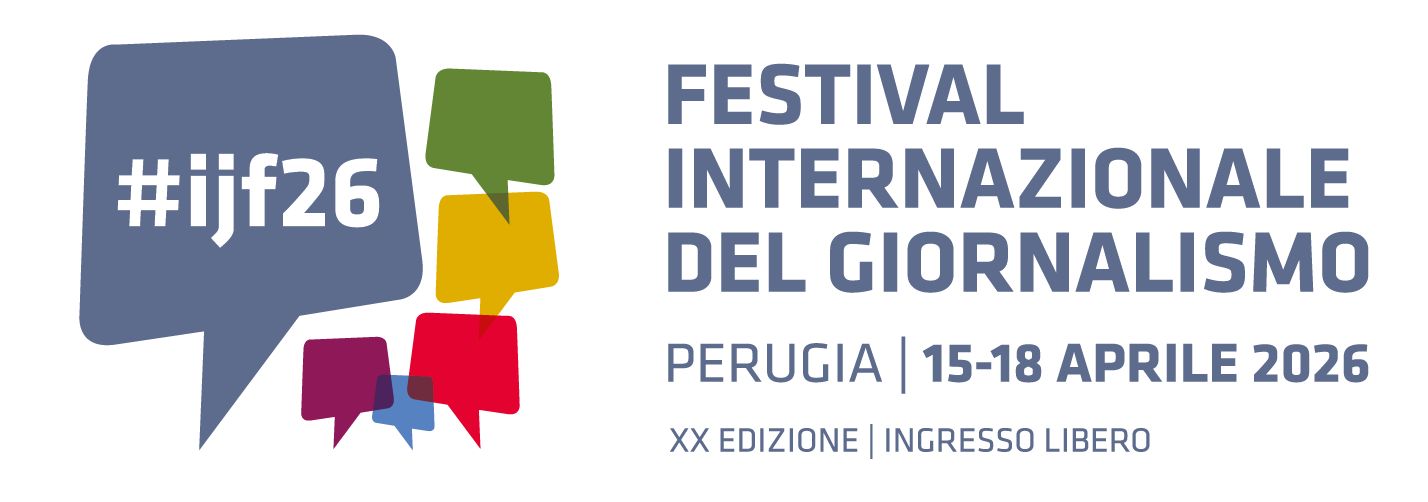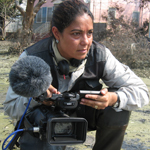 Ruhi Hamid è una regista, i suoi film sono viaggi all’interno dei mondi delle persone e delle loro culture. Nata a Mwanza in Tanzania da genitori asiatici, da giovane ha frequentato il prestigioso Royal College of Art. Dopo la laurea si è dedicata al progetto The Maviyane Project, un progetto nato con l’intento di cambiare l’immagine e la percezione della pubblicità e del design in Zimbabwe. Tornata in Inghilterra, ha lavorato come documentarista alla BBC. È stata la prima documentarista a filmare per intero la difficile situazione della gente Hmong nelle giungle del Laos, abbracciandone poi la causa anche davanti alle Nazioni Unite, al Dipartimento di Stato e al Congresso americano, arrivando anche alla Commissione europea dei diritti dell'uomo. Esponendo se stessa ad ogni tipo di rischio, ha realizzato progetti in Cambogia, Laos, India, Pakistan, Afghanistan, Egitto, Turchia e Africa. Il suo Lahore Law ha ricevuto la nomination al premio Grierson and Broadcast come migliore serie di documentari, At the Epicentre un documentario sul post-tsunami ha vinto nel 2005 il premio Rory Peck. Nello stesso anno ha filmato a New Orleans i devastanti effetti dell’uragano Katrina. Per Channel 4 ha diretto un lavoro su donne ed Islam e ha vinto un premio con The Rock Star & the Mullahs sul rapporto tra musica e Islam in Pakistan. È l’autrice dei film The King’s New Laws e Forced To Marry. Oltre a dirigere film si occupa dell’integrazione delle giovani donne musulmane nel mondo dei media. Collabora regolarmente con BBC Radio’s Asia Network, al programma Woman’s Hour su Radio 4 e partecipa spesso a festival e conferenze che si occupano di temi legati al mondo musulmano e ai diritti umani.
Ruhi Hamid è una regista, i suoi film sono viaggi all’interno dei mondi delle persone e delle loro culture. Nata a Mwanza in Tanzania da genitori asiatici, da giovane ha frequentato il prestigioso Royal College of Art. Dopo la laurea si è dedicata al progetto The Maviyane Project, un progetto nato con l’intento di cambiare l’immagine e la percezione della pubblicità e del design in Zimbabwe. Tornata in Inghilterra, ha lavorato come documentarista alla BBC. È stata la prima documentarista a filmare per intero la difficile situazione della gente Hmong nelle giungle del Laos, abbracciandone poi la causa anche davanti alle Nazioni Unite, al Dipartimento di Stato e al Congresso americano, arrivando anche alla Commissione europea dei diritti dell'uomo. Esponendo se stessa ad ogni tipo di rischio, ha realizzato progetti in Cambogia, Laos, India, Pakistan, Afghanistan, Egitto, Turchia e Africa. Il suo Lahore Law ha ricevuto la nomination al premio Grierson and Broadcast come migliore serie di documentari, At the Epicentre un documentario sul post-tsunami ha vinto nel 2005 il premio Rory Peck. Nello stesso anno ha filmato a New Orleans i devastanti effetti dell’uragano Katrina. Per Channel 4 ha diretto un lavoro su donne ed Islam e ha vinto un premio con The Rock Star & the Mullahs sul rapporto tra musica e Islam in Pakistan. È l’autrice dei film The King’s New Laws e Forced To Marry. Oltre a dirigere film si occupa dell’integrazione delle giovani donne musulmane nel mondo dei media. Collabora regolarmente con BBC Radio’s Asia Network, al programma Woman’s Hour su Radio 4 e partecipa spesso a festival e conferenze che si occupano di temi legati al mondo musulmano e ai diritti umani.
domenica 25 aprile - ore 17.00
Ruhi Hamid is a film maker and her films are informative journeys into the world of people and their cultures. Ruhi was born in Mwanza, Tanzania to Asian parents and attended London's prestigious Royal College of Art. After graduating Ruhi worked as part of a collective of young black designers and photographers in a newly independent Zimbabwe. The Maviyane Project set about to challenge and to change the image and perceptions of advertising and design in Zimbabwe. Ruhi returned to the UK and joined the BBC's pioneering community programmes unit turning her skills to programme making where she worked on the BAFTA award winning series Video Diaries. By listening and allowing contributors to open up and trust her, Ruhi has gained unprecedented access to peoples and cultures and has captured the important moments on camera. The plight of the Hmong people who have been trapped for 30 years in the jungle of Laos is close to Ruhi's heart. Ruhi filmed the first ever footage of the plight of the Hmong and she has gone on to campaign on their behalf at the UN, the US State Department, Congress and at the EU Rights Commission in Brussels. Often shooting alone, at great personal risk, Ruhi has worked on a range of films in Cambodia, Laos, India, Pakistan, Afghanistan, Egypt, Turkey and across Africa. Her ethos is always the same – to enlighten and educate audiences in Britain about the plight of ordinary people’s lives in other parts of the world. Her Channel 4 series Lahore Law was nominated for the Grierson and Broadcast award for Best Documentary Series. Ruhi makes films that make real impact. She went to Banda Aceh, Indonesia making a one hour documentary, At the Epicentre for BBC TV. Filming for six months in post Tsunami Aceh Ruhi shared hazardous living conditions of the people she was filming. For this film Ruhi received the Rory Peck Award 2005. In the same year Ruhi travelled to New Orleans to cover the aftermath of Hurricane Katrina. She also travelled to Pakistan and gave her free time to produce and direct a pop video campaigning for greater awareness of people with HIV/AIDS in Pakistan. Ruhi ended 2005 filming in Afghanistan, risking her life, making three films on the progress of women's lives for the newly launched Al Jazeera International Television Network. Ruhi has directed and filmed across the Islamic world making a two part series for Channel 4 on women & Islam, and the award winning film The Rock Star & the Mullahs about music & Islam in Pakistan. The sequel to this was a film project about American muslims in post 9/11 America during the run up to the November 2004 elections. Three years ago Ruhi authored a film on Shari’ah Law in Nigeria, and made The King’s New Laws about the rights of women in Morocco. To make her touching film Forced To Marry she gained unique access to the British High Commission in Pakistan who rescue British girls forced into marriage. Most recently she has completed a powerful film on women in Afghanistan and is currently working on a new series on Africa with the broadcaster Jonathan Dimbleby. Apart from making films, Ruhi imparts her experiences and skills to train and empower other young Muslim women in the media. She is a regular contributor to BBC Radio’s Asia Network, Woman’s Hour on Radio 4 and takes part in various film festivals and conferences on the media promoting issues around human rights and Muslim issues.


